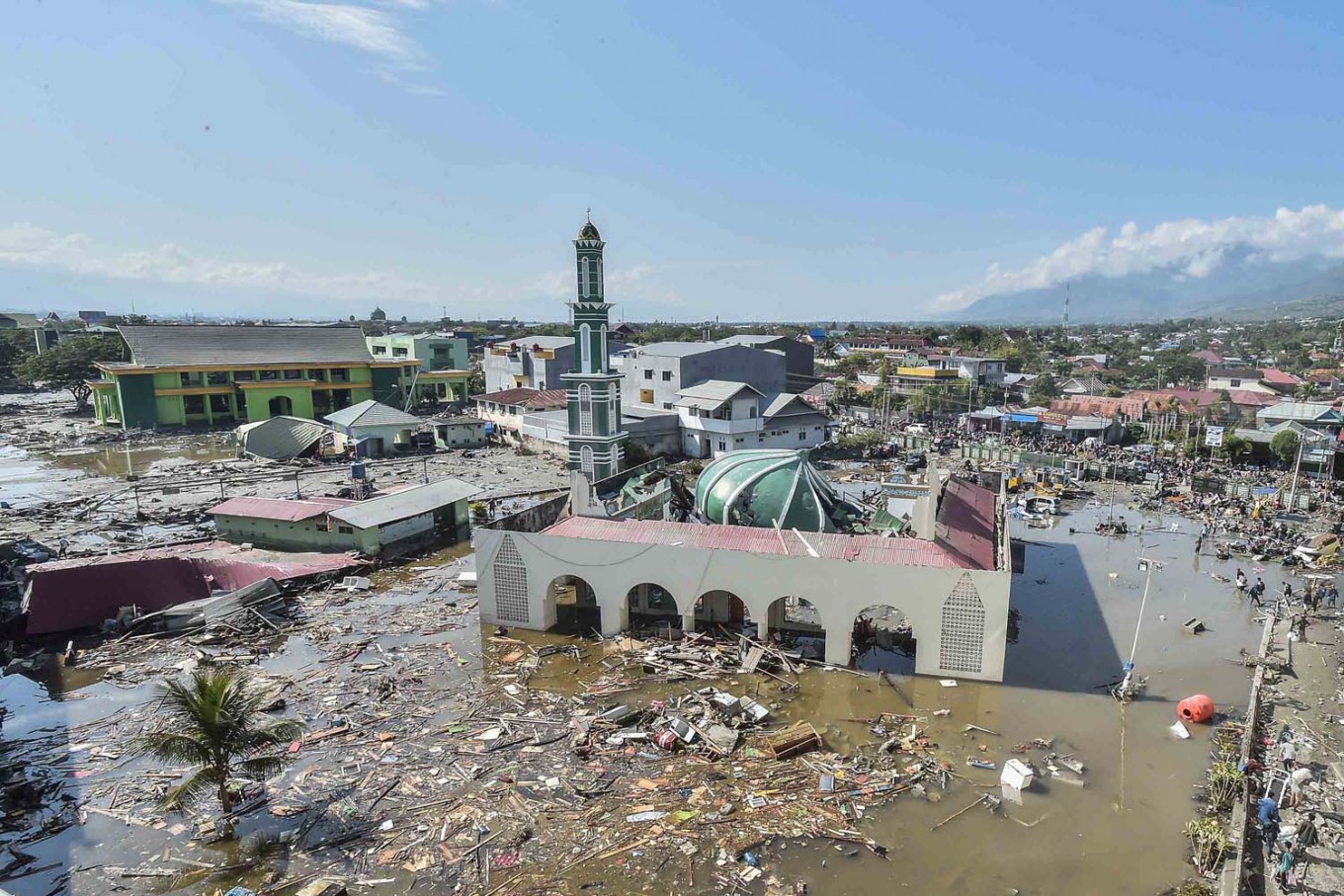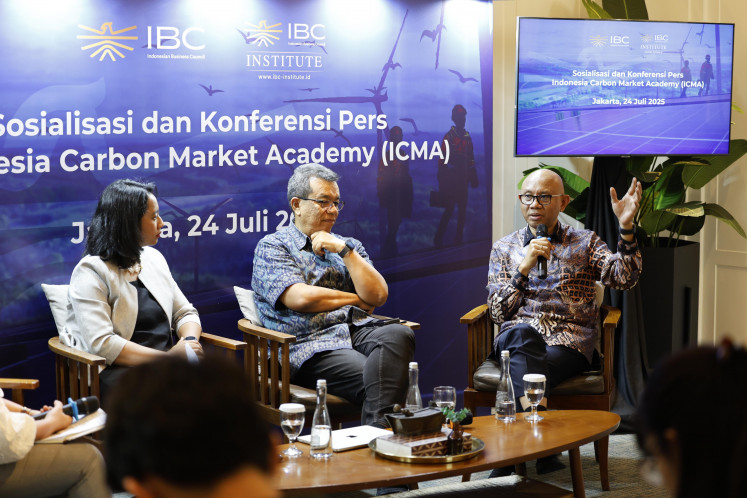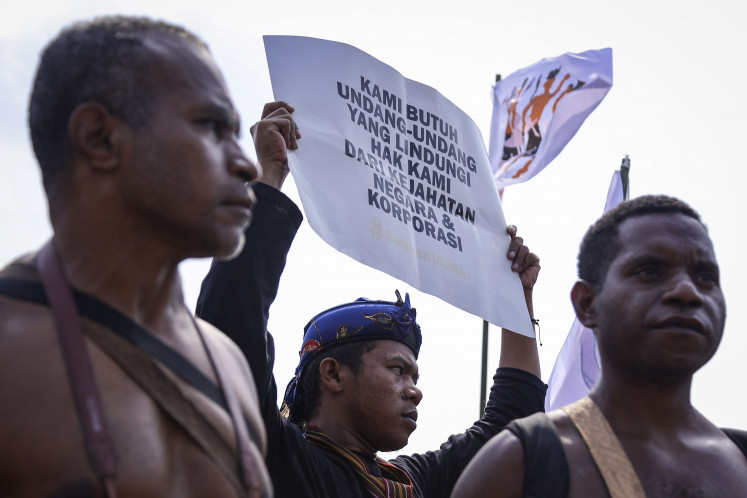Popular Reads
Top Results
Can't find what you're looking for?
View all search resultsPopular Reads
Top Results
Can't find what you're looking for?
View all search resultsLatest devastation
Given the seven-month campaign period ahead of the April 2019 elections, it is best to cut this period short and instead focus on limited resources to alleviate the widespread suffering.
Change text size
Gift Premium Articles
to Anyone
T
he nation is grieving again as an earthquake and tsunami hit Central Sulawesi, while reconstruction in Lombok, West Nusa Tenggara, the site of major earthquakes in August, has barely begun. As of Sunday, nearly 840 people were found dead in the coastal town of Palu and Donggala regency after an earthquake measuring 7.4 on the Richter scale struck on Friday afternoon, with Donggala located closer to the epicenter.
The Meteorology, Climatology and Geophysics Agency briefly “ended” a tsunami warning, said its chief Dwikorita Karnawati, around the same time waves of around 1.5 meters high had swept the coast. She cited a lack of sensors among suspected failures in the tsunami warning system on the “K”-shaped island crisscrossed by at least two major faults.
On the popular Talise coast of Palu, the province’s capital, a festival was being held; many participants, including athletes, are among the missing, along with guests of a few hotels and a mall that collapsed.
Amid blackouts and disrupted communications, families are scrambling to search for missing members. With aftershocks occurring, search and rescue operations were halted Sunday morning while residents were warned against entering buildings. The sight of armed security personnel raises worries of survivors being harmed if they are considered looters, with many having begun to help themselves to ruined stores.
These merciless disasters are heightening, again, awareness of the precarious archipelago on which we live among tectonic faults and active volcanoes. However, the painful lessons of earlier disasters, including the December 2004 earthquake and tsunami of the Indian Ocean in which Aceh was worst hit, is not reflected in our level of preparedness.
According to researchers Central Sulawesi is the most prone in the country to tsunamis, with the latest meaning that the area has seen at least 19 such occurrences since 1820. Though the last similar disaster there was recorded in 1996, it was only with the Aceh and North Sumatra tragedies that we learned the word “tsunami” all over again, while folk wisdom on what to do in such disasters have largely faded from collective memory.
Disaster-related authorities have said public awareness campaigns on natural disasters have continued for years, including in schools in Central Sulawesi. However, as evident in how buildings collapsed and how they invite death and destruction with their close proximity to the water — such as the beautiful “floating mosque” on Palu’s beach, which is now bobbing and floating offshore — it seems leaders and city planners have repeated grave mistakes as in other disaster-prone cities, whether or not they have building codes encompassing earthquake-resistant standards.
Meanwhile, the general election campaign period kicked off last week. Political parties from both camps have instantly geared up their volunteer groups for Palu and Donggala; images of the aid adorned with party logos and their candidates’ pictures will vie for coverage among the ruins. Given the seven-month campaign period ahead of the April 2019 elections, it is best to cut this period short and instead focus on limited resources to alleviate the widespread suffering.










